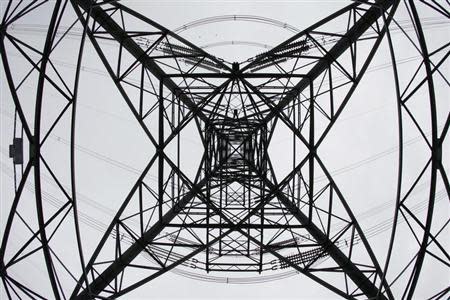UK Power Networks says its response to holiday blackouts was too slow

LONDON (Reuters) - The head of UK Power Networks, one of Britain's biggest electricity distributors, said its response to a storm that cut off more than 300,000 customers on Christmas Eve had been too slow because many staff were on holiday at the same time.
Basil Scarsella, chief executive of the company owned by Hong Kong's Cheung Kong Group, was responding to criticism from customers over delays in restoring supply.
Around 600 households across Britain, served by various power firms, remained without power on Sunday. Many had been cut off since December 24 when a storm packing winds of more than 100 mph (160 kph) caused flooding and travel chaos for thousands.
A UK Power Networks spokeswoman said on Sunday that 107 of the firm's eight million customers, who are concentrated in the southeast and east of England, remained without power.
Scarsella, whose company also covers London, said he would review staff holiday arrangements after a response which he said had fallen short.
"We could and should have done more," he said in an emailed statement based on an interview with Britain's Mail on Sunday newspaper. "It's difficult to justify saying the company has performed well when customers have been without power for five days but once we had an idea of how bad it was we were able to mobilise as many engineers and office staff as possible."
His company had encountered problems, he added, because too many of its staff were on their Christmas holidays at the time.
"I am considering restricting employees' holiday in future," he said.
On Saturday, the firm pledged to almost triple compensation to households left without power over Christmas as a "gesture of goodwill".
A second storm on December 27 hampered its efforts to restore power, with gale force winds causing more havoc in the worst-hit areas of Kent, Surrey and Sussex in southeast England.
(Reporting by Andrew Osborn; Editing by Anthony Barker)


